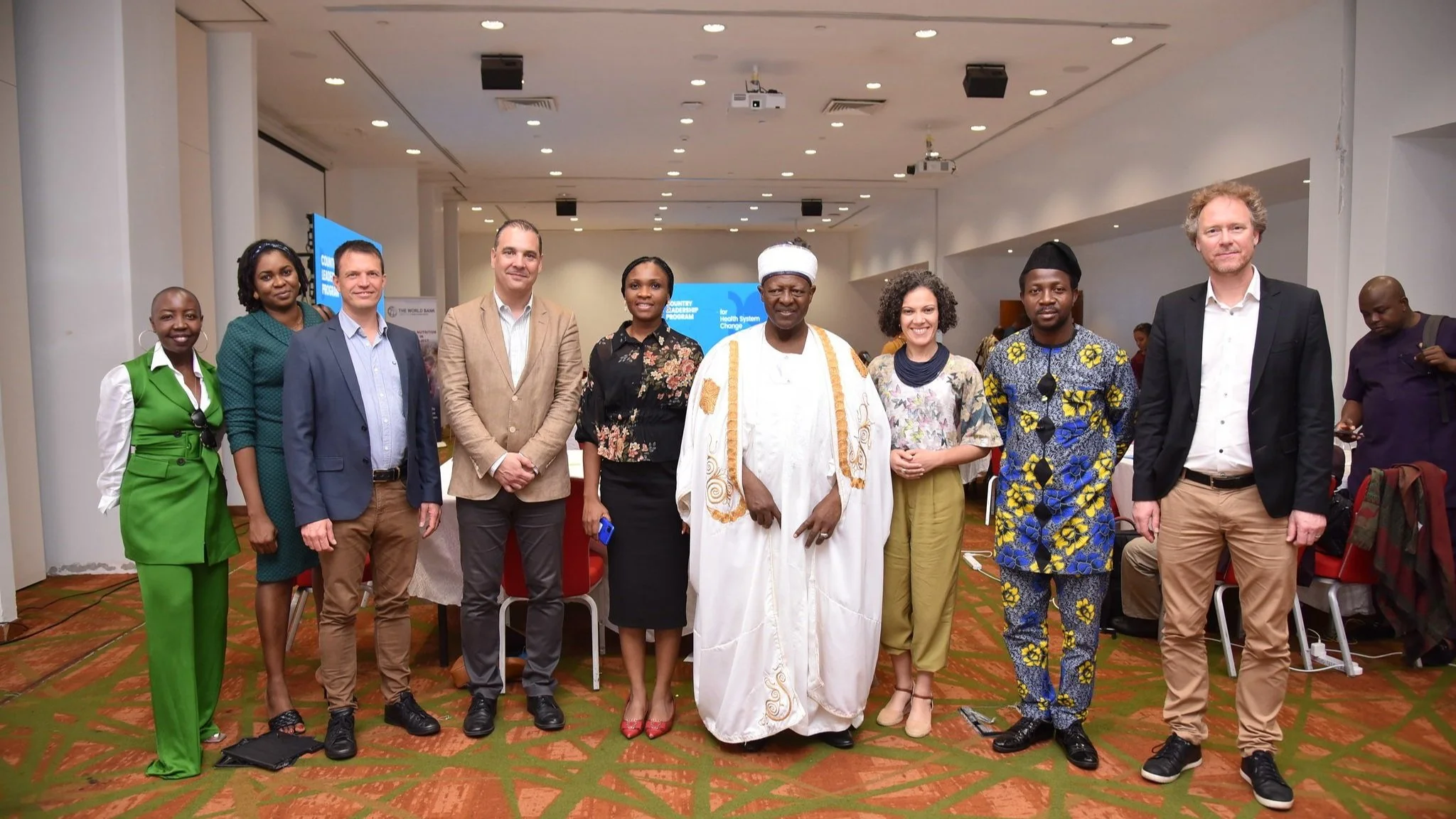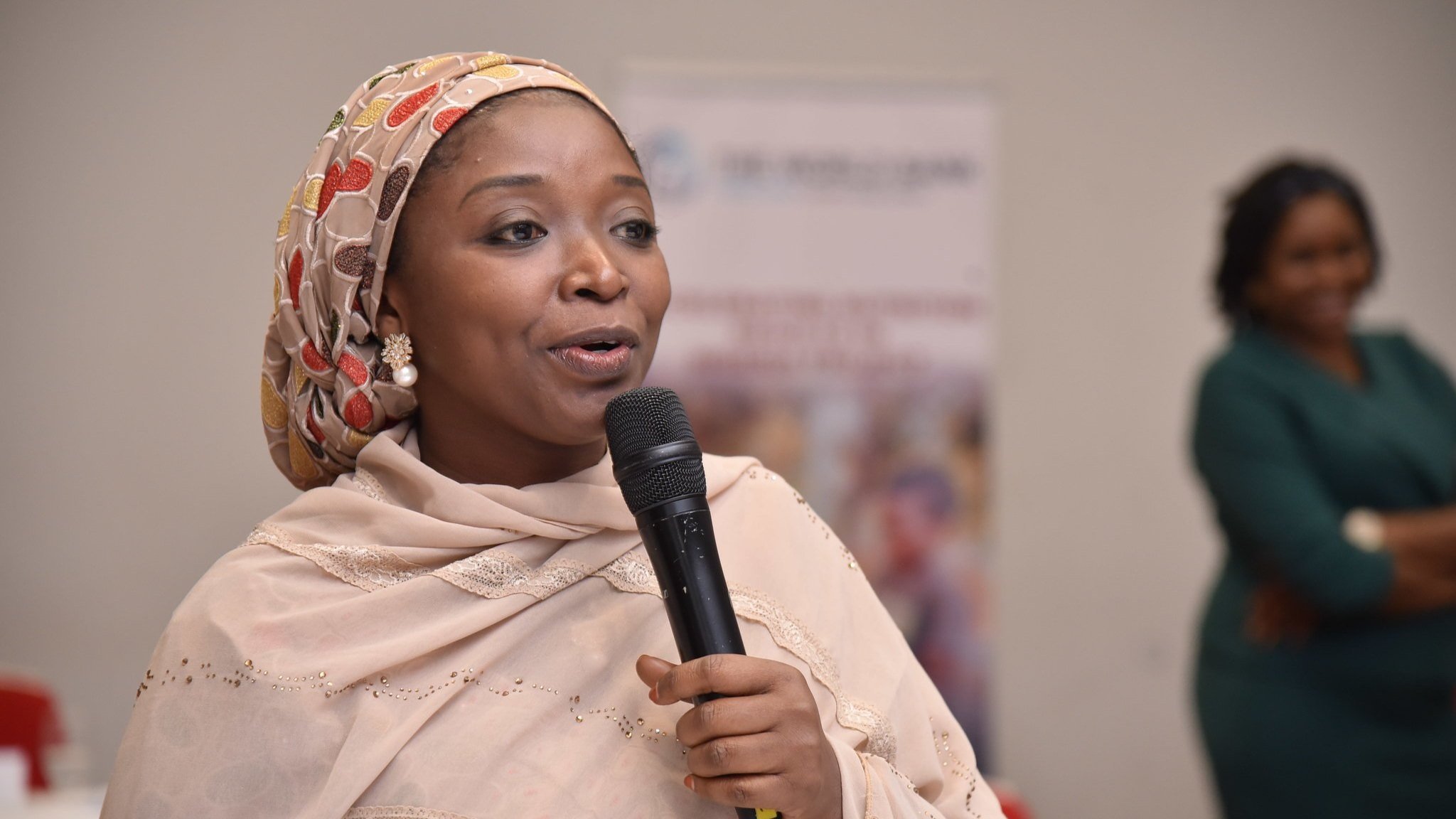How Nigeria is harnessing the power of transformative leadership to improve healthcare outcomes for women and children
"Tackling complex health system challenges is no easy task, but I was inspired by the dedication and commitment of the team I worked with," says Dr Shola Dele-Olowu, an Amp Health Management Partner (MP) formerly embedded in Nigeria’s Federal Ministry of Health (FMoH). This statement reflects the spirit of Nigeria's health leaders who, despite many challenges, have made remarkable progress in improving health outcomes for women and children.
In 2020, the Global Financing Facility for Women, Children, and Adolescents (GFF), which is hosted by the World Bank, published a report assessing Nigeria’s progress in reproductive, maternal, neonatal, child, adolescent, elderly health, and nutrition (RMNCAEH+N). The report identified gaps in the coordination of activities to address these issues, prompting the FMoH’s Family Health Department, led by Dr Salma Anas, to develop interventions to address these gaps.
One of the interventions was the establishment of a multi-stakeholder coordination platform for RMNCAEH+N, which was launched by the Minister of Health in October 2020. The Family Health Department was given the responsibility to act as the platform secretariat. However, coordination remained an issue and the platform was not meeting regularly or playing an effective coordination role. As such, the FMoH approached the GFF requesting support who, in turn, engaged Amp Health.
Strengthening teams through the GFF’s Country Leadership Program
In May 2022, the year-long Country Leadership Program (CLP) was launched in Nigeria and an Amp Health MP was embedded in the Family Health Department to work with the team. The CLP aims to drive systemic change in health systems by building leadership capacity and fostering a culture of peer learning and inter-agency coordination.
The programme began with a four-day training retreat. During this session, three key priorities were identified which, if implemented, would enable the Family Health Department to achieve its transformational leadership goals, and drive systemic change in the country. These priorities were:
Improve stakeholder partnerships and strengthen collaboration through the multistakeholder coordination platform
Strengthen accountability at all levels of the platform
Improve communication and coordination among relevant stakeholders
Capacity building within the Family Health Department
With the support of the Amp MP, the team applied learnings from the retreat to their day-to-day work. This led to the identification of innovative ways to address the challenges faced by the multi-stakeholder coordination platform.
The team also used CLP distance learning materials, individual and team coaching sessions with the MP, and peer learning opportunities to build capacity and strengthen their leadership and management skills. These efforts were instrumental in improving the strategic planning and decision-making skills of the department’s health leaders.
Building a culture of accountability, collaboration and communication
The Family Health Department developed clear communication channels and accountability frameworks, leading to increased transparency and stakeholder satisfaction. The team’s collaborative efforts with other state ministries and various health agencies led to the operationalisation of the national multi-stakeholder coordination platform.
Encouragingly, Nigeria’s National Council of Health has since taken the initiative a step further by directing Nigerian states to establish their own coordination platforms and subnational family health departments.
Developing a national strategy for reproductive and maternal health
The Family Health Department, with the support of the Amp Health MP, reviewed and revised their national strategy for reproductive and maternal health. Unlike the previous strategy, the revised version was focused more on effective programme implementation guided by clear strategic objectives.
The strategy includes a focus on improving the quality of health services. It introduces a five-year plan with clear targets to improve patient satisfaction, increase access to affordable care, and halve maternal and newborn mortality.
During this time, the Family Health Department faced leadership transitions and resource constraints. Despite this, the partnership between Amp Health, the GFF, and the FMoH resulted in significant achievements, including improved leadership and management capacity within the team, the operationalisation and regionalisation of the multi-stakeholder coordination platform, and the development of a comprehensive national strategy for reproductive and maternal health.
These achievements demonstrate the resilience and commitment of the Family Health Department to improving health outcomes for women and children, positioning the team as key stakeholders in fostering transformative partnerships and as leaders in Nigeria’s health sector.




